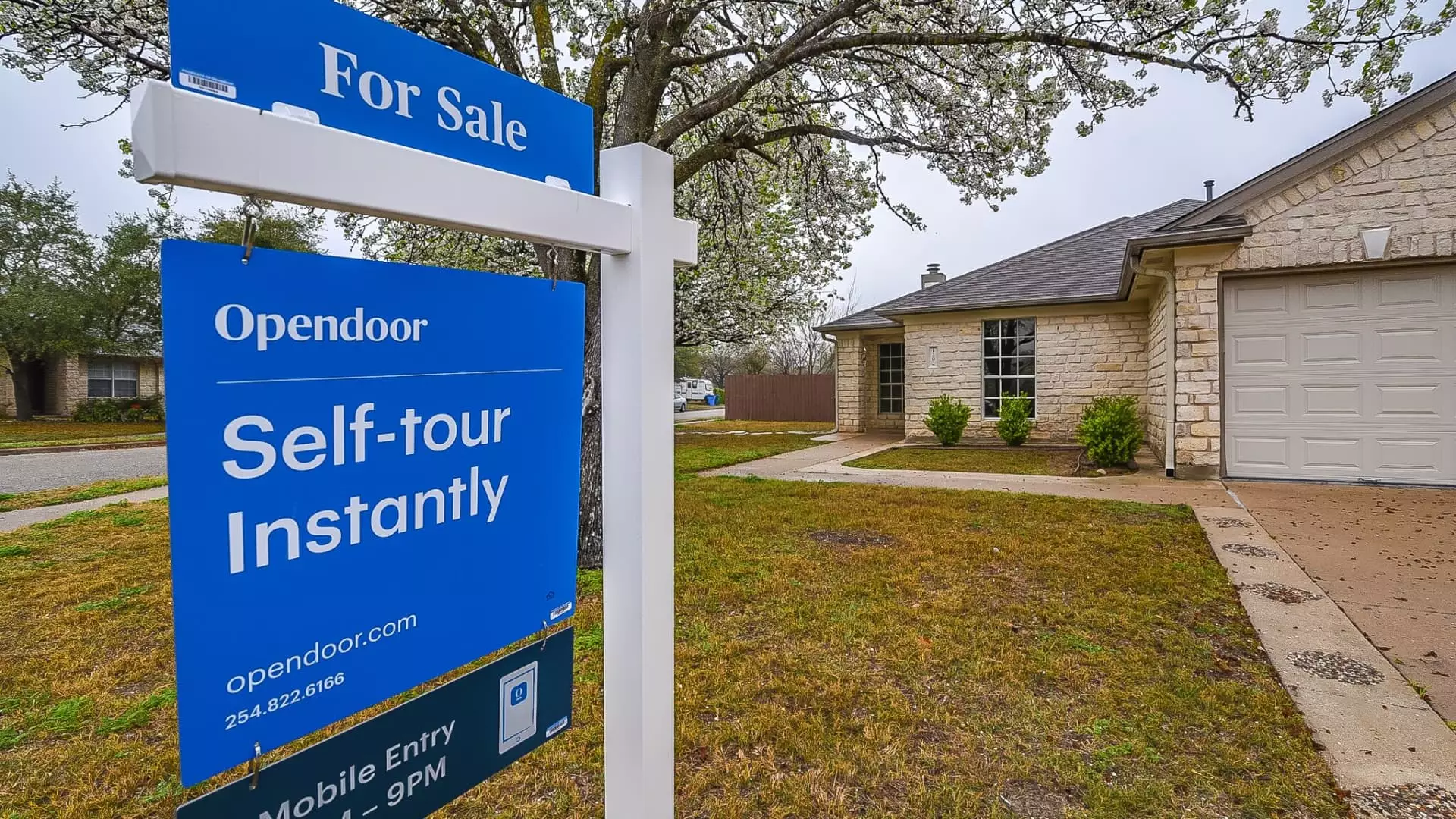Opendoor’s recent stock surge may appear, at first glance, as a sign of newfound investor confidence. The shares climbing nearly fivefold within a few weeks could be mistaken for a market revival in the once-struggling iBuying sector. However, beneath this apparent enthusiasm lies a fragile situation, emblematic of speculative frenzy rather than sustainable growth. The company’s CEO, Carrie Wheeler, expressed gratitude for investor interest, yet this superficial appreciation masks the underlying vulnerabilities. The truth is, Opendoor remains entangled in structural issues: a declining revenue base, a shrinking market, and a reliance on market sentiment rather than actual business fundamentals. Such transient boosts often invade the psyche of investors who mistake volatility for validation, ignoring the deeper risks associated with a company still hemorrhaging cash and facing a bleak outlook.
Market Conditions and a Demoralized Business Model
The core problem for Opendoor stems from a housing market that has been under siege from rising interest rates. After a pandemic-era boom driven by historically low mortgage rates, the landscape shifted dramatically in 2022. As borrowing costs increased, demand for home purchases plummeted, and Opendoor’s revenue sank from a peak of nearly $16 billion to just over $5 billion last year. This decline underscores how precarious the company’s model has become, as it depends heavily on volume and market activity that are now in retreat. The company’s recent financial results reflect this: a minor revenue uptick does little to offset a significant net loss, and projections for future revenue are bleak—down at least 36% year over year in the upcoming quarter. The housing market’s deterioration isn’t an anomaly; it’s a systemic issue that no amount of strategic rebranding can fully shield Opendoor from, especially when traditional home sales and market liquidity are under severe strain.
The Narrative of Revival versus Reality
What’s striking here isn’t just Opendoor’s tense financial footing but the narrative spun around it. Hedge fund manager Eric Jackson’s bullish stance—estimating a stock price of up to $82—fuelled speculation that a turn in the company’s fortunes is imminent. Yet, this optimism appears disconnected from reality; Jackson’s belief hinges on a complete revival of market conditions and a return to historic revenue levels that are unlikely to materialize soon. The recent quarter’s modest growth, a slim narrowing of losses, cannot obscure the sobering truth: after years of dependency on a booming market, Opendoor is struggling to adapt. Its shift toward a referral-focused, less capital-intensive model is a strategic pivot that may slow losses but doesn’t guarantee profitability or even a sustainable business. The optimism underscores a broader tendency in markets to chase quick gains based on hope rather than evidence—something center-right economic ideologies would caution against, advocating for realistic expectations and prudent management.
The Strategic Exit and the Illusion of Resilience
One of the more telling moves by Opendoor was its decision to cancel a planned reverse stock split, a last-ditch effort to maintain its Nasdaq listing after hitting rock bottom. This decision signals an acknowledgment that the company cannot rely on artificial maneuvers to sustain its valuation forever. Instead, Wheeler’s emphasis on pivoting toward a “referrals” model indicates a recognition that its original iBuying model—buying and reselling homes quickly for profit—has become unsustainable in current conditions. While diversification into more conservative revenue streams might offer some relief, it also exemplifies the company’s shift from a growth-oriented platform to a survival-based approach. This strategic retreat raises questions about whether Opendoor can reinvent itself sufficiently to attract genuine, long-term investor confidence or if it remains a speculative gamble sustained by optimism rather than fundamentals.
The Bigger Picture: A Reflection of Market Myopia
Opendoor’s saga exemplifies a broader issue within financial markets: the temptation to overvalue temporary rebounds. Investors, especially amid a volatile economic climate, often fall prey to hope—riding the wave of a stock’s surge without adequately accounting for the underlying weaknesses. As the housing market continues to grapple with high mortgage rates and declining demand, companies like Opendoor face a grim reality, regardless of their strategic promises. The stock’s recent fluctuations expose how the market can latch onto narratives of resurgence, only to be let down by persistent structural problems. For center-right observers who champion fiscal discipline, responsible investing, and market rationality, Opendoor’s story underscores a need for skepticism—recognizing that real, durable growth requires more than just market sentiment and strategic rebranding; it demands fundamental strength and resilience, neither of which seem fully present at this stage.

